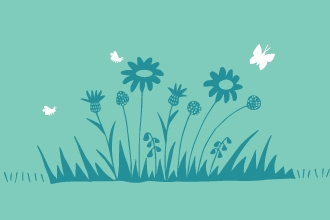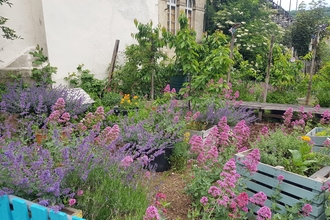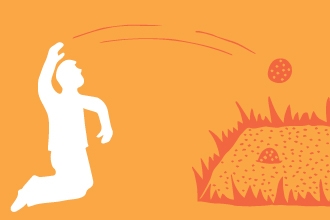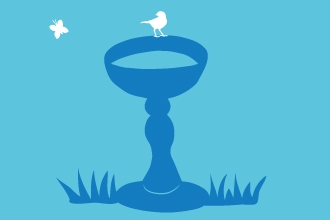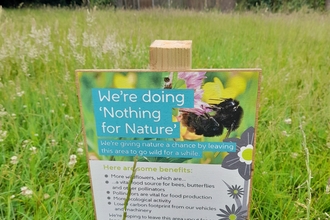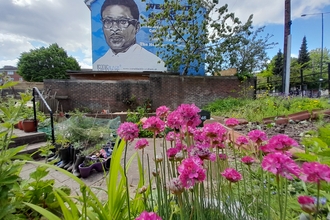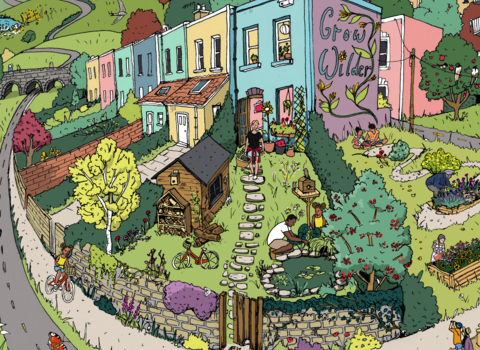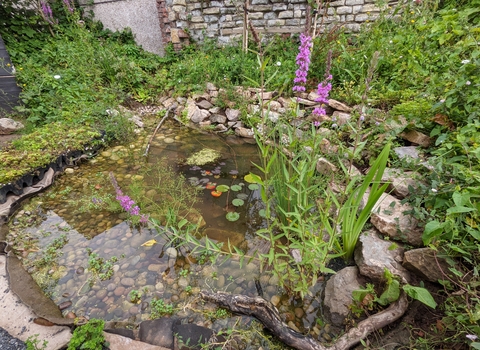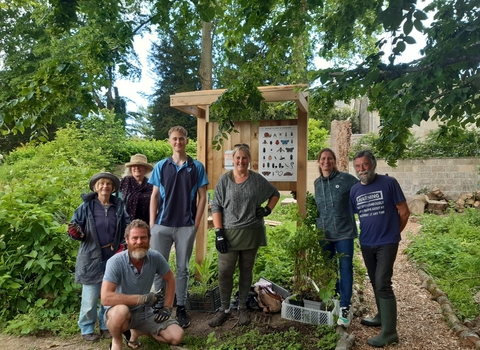Taking over green space in your area
Who owns it?
Have you got your eye on a patch of land in your area? Perhaps somewhere that needs tidying up, then adding some vegetables or herbs or wildflowers?
You can get control with the following steps and a long-term view to management of the area.
- Ask your Local Authority (council). Find out who your Local Authority is by clicking this link and entering your postcode. Then go to their website and send an email to their enquiries email or planning email or ring them. They might have their own deeds records or County Record Office.
- If the Local Authority doesn’t know, then simply ask the local shops, businesses, and houses.
- Around 85% of the land in the UK is registered with the Land Registry It will cost £3 to do an online search.
As your patch of land probably won’t have an address, you’ll need to do a map search. You can use 'Search of Index Map' link below. This costs £4 and you need to submit as much information as possible, including an Ordnance Survey map reference.
Search of Index Map (SIM) to find who owns the land - You could also check the Land Registry records for the properties and land next to the land you’re interested in, as sometimes they might say “plus the adjoining land” or similar.
- But note! Even if some land is not registered, it still doesn’t mean that no-one owns it – so don’t assume you can just take it over. Do as much research as you can.
Do you want to buy it?
It may be worth looking into “Assets of Community Value.”
Every Local Authority in England keeps a list of these Assets. They are buildings or land that are “mainly in actual use for the social, well-being or social interests of the local community”. So, this can include parks and green space. If an Asset goes up for sale, then local people are allowed to come together and bid for control over it, by forming a Community Interest Group or other specified typed of group.
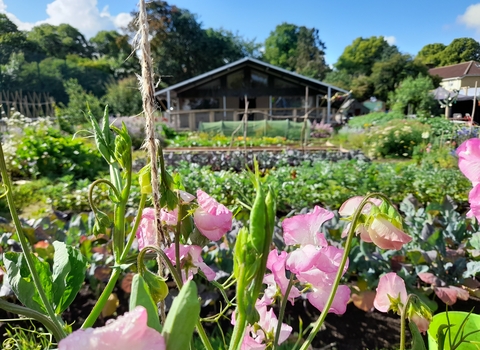
Redcatch Community Garden
Redcatch Community Garden
Two local residents in BS4 had a vision to buy and transform a disused bowling green into a community space, which now provides a welcoming outdoor space for everyone, with a cafe, allotment, garden, event space to address community needs and encourages everyone to reach their potential.
Do you just want to use it?
You will need the landowner’s permission. In some cases, there will also be a leaseholder who rents the land from the landowner: for example, a car parking company which rents land from the council. It took a local group two and a half years to negotiate for the use of a small strip of land alongside the carpark (an extreme example!). You’ll need to talk to both the landowner and the leaseholder.
You might be asked for a risk assessment They will probably want to see a plan for what you want to do, so be ready. And they could want to do a “utilities survey” first. You definitely don’t want to dig through an electricity cable!
Do make sure there is a contract which states who is responsible for what, and for how long. It does not have to be complicated, but it does have to be clear. They may put restrictions in place, such as a ban on using power tools, or certain rules about how the land can be used.
Check with the planning department of your Local Authority about planning permission. Simply growing food will be “agricultural” but if there’s a building on the land and you’re going to be doing other activities, it may need a change of use.
You will need to consider insurance such as public liability insurance. Talk to your Local Authority, and also see our document about Insurance for Groups.
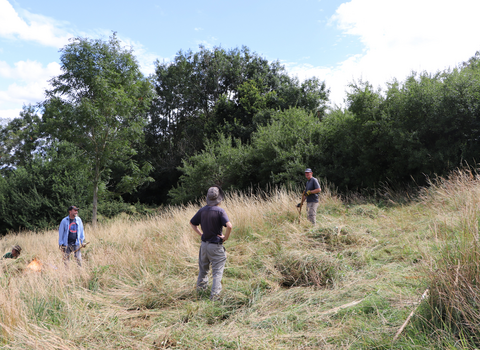
Rebecca Nimmo
Here’s an example:
A group wants to clear a patch of wasteland. They do a risk assessment. They find out the risks are nettles and using chainsaws or scythes.
How likely are nettle stings? Very likely. How harmful are they? Not very harmful. But because they are so likely, they fall into a red box on the risk assessment matrix. So, the group puts a control measure in place – they give everyone gloves. Now, everyone is much less likely to be stung.
What about the use of chainsaws. The group has one chainsaw. What’s the harm? This could be very harmful indeed. But how likely is it to cause harm? The group see that only one person is allowed to use a chainsaw and they have been properly trained. They have all the right safety equipment. This means the likelihood of anything going wrong is very low indeed – as long as all the rules are followed.
What’s your plan?

Redcatch Community Garden
You will need some kind of plan so that you know who is responsible for doing what. Creating a Group
You also need to know how this project will be sustained. You can’t just plant something and expect it to look after itself. What happens in winter? What happens next year?
Fundraising and Finances Will you need a budget? You might need funds for the insurance, or tools, or publicity.
Finally, you’ll need a crisis plan or list of things to do in an emergency. What if something happens to the land that you’re responsible for? A fire, perhaps? Or someone critical to the project becomes ill or moves away. Come up with all the possibilities, and what you can do to stop them happening, or what you’d do if they did happen.
Resources
Advice from the Government, RHS, Social Farms and Gardens, Open Spaces Society and My Community are on the useful links below.
Useful Links
The government is trying to make it easier for you to grow food in your community. See this:
Government Community Food Growing Advice
The Royal Horticultural Society has useful information about community gardening here:
RHS Community Gardening
Social Farms and Gardens has information for city farms and community gardens. They are also funded to support projects in Wales, but they have advice for all four nations. See:
The Open Spaces Society has very clear information about
Assets of Community Value
How to Bid on Assets through My Community
This document from My Community tells you more about:
Community Assets, Bidding for Ownership, and other ways to Reclaim Land:

National Lottery Heritage Fund
Be part of Team Wilder
All actions for nature collectively add up and creates life for people and wildlife.
Share your actions for nature, like Tom by sharing and tagging @avonwt on social media and
Log your actions for nature on the map








